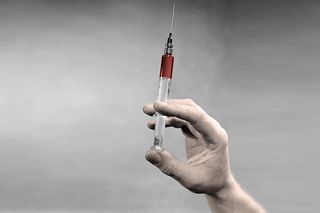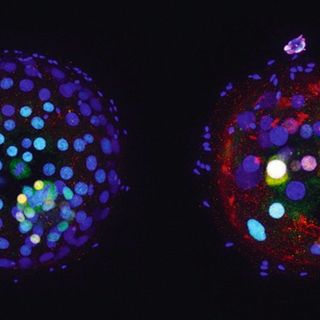
Study: No Link Between HPV Vaccine And Infertility
In fact, there’s some evidence getting vaccinated gives fertility a boost.

Another day, another study finding no evidence of serious risk or danger in the HPV vaccine. This time, researchers looked into whether the HPV vaccine had any long-term side effects on fertility, finding zero evidence that the vaccine causes infertility or sterility among adolescents who receive it.
Specifically, researchers looked into whether the HPV vaccine could cause ovarian failure, also known as primary ovarian insufficiency (POI) or premature menopause. The suggestion of a link originated with a court case in the US, in which two sisters claimed the HPV vaccine, known there by its brand name Gardasil, had sent them into premature menopause. In 2016, a judge dismissed their case, finding their symptoms of ovarian failure began prior to receiving the HPV vaccine.
Still, rumors have persisted, which is why researchers at Kaiser Permanente, a health care service company in the US, decided to explore the topic.
“In a population of 58,871 young women who received the HPV vaccine during the study period, we found only one case of an individual who possibly had symptoms of primary ovarian sufficiency after vaccination,” said Allison Naleway, PhD, lead author and investigator with the Kaiser Permanente Center for Health Research. “If POI is triggered by the HPV vaccine or another recommended adolescent vaccine, we would have expected to see higher incidence in the younger women who were most likely to be vaccinated. But we found no elevated risk for these individuals.”
In fact, if the HPV vaccine affects fertility in any way, it may offer a boost. A 2017 study found that vaccinated women with a history of sexually transmitted infections had the same chance of conceiving as unvaccinated women who had never had a sexually transmitted infection.
“Our study found no adverse effects of HPV vaccination on fertility and indicated that it may, in fact, protect fertility among individuals who have had other STIs,” said doctoral student Kathryn McInerney, the study’s lead author, at the time. “Our study should reassure those who are hesitant to vaccinate due to fertility concerns.”
The same is true for male fertility, which is especially pertinent given the growing support for administering the HPV vaccine to boys and men as well as girls. A human papillomavirus infection, like most STIs, can inhibit fertility; viral DNA can be transmitted via sperm and make fertilized eggs unviable. But when men with an HPV infection in their semen received the HPV vaccine (which can be administered retroactively, though it is less effective than when it’s a preventative measure), certain measures of fertility improved. For instance, sperm motility increased. And the partners of the HPV-infected men who received the vaccine were nearly twice as likely to conceive as the partners of HPV-infected men who did not receive the vaccines. Of those who conceived, the rate of miscarriage among the partners of non-vaccinated men was 64%; the rate of miscarriage among the partners of men who had received the HPV vaccine was 3%.
In other words, if there’s anything to be concerned about, it’s the likelihood of an HPV infection damaging fertility. Good thing there’s a vaccine to prevent that.
Liesl Goecker is The Swaddle's managing editor.
Related


For the First Time, Scientists Edit Embryos Free of Disease, Keep Them Viable
